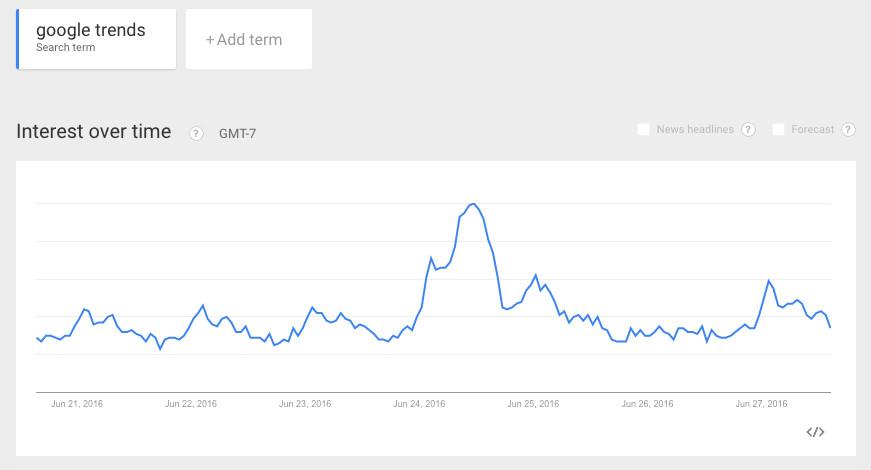One Week Later: The news cycle moves fast. Sometimes, it’s worth pausing to revisit an event with added context.
Last week, the United Kingdom held a referendum on whether to remain in the European Union. Voters decided to “Brexit” in a close race. The next day, The Washington Post published a story that used Google Trends data to stress that UK voters were bamboozled tossers.
“Despite the all-out attempts by either side to court voters, Britons were not only mystified by what would happen if they left the EU — many seemed not to even know what the European Union is,” the Post wrote. Many other news outlets, from NPR to Time, picked up the story about daft Britons.
But this week, we’re learning that the second-day coverage was unfair. As software developer Danny Page pointed out in his Medium post “Stop Using Google Trends,” it’s an enormous leap to imply that people straight up don’t know what the EU is instead of assuming that they were simply doing research. Page also referenced a tweet from FiveThirtyEight’s Ben Casselman to underscore how Trends can be used to illustrate people “frantically Googling” pretty much anything in the news.
“With this knowledge, you can either be an asshole and assume that many people didn’t know who Mitt Romney is after the election, or perhaps we can more likely conclude that it’s a function of people’s search habits of researching a relevant topic,” Page wrote.
A Northwestern student named Remy Smith examined the Google Trends data more closely and pointed out that it was less than 1,000 people who had created the dramatic-looking spike in EU searches — hardly a reveal of widespread dumb-assery.
You know what else started Google Trending during this time? Google Trends! In fact, on June 24, the day that Google tweeted about the dumb Brits trying to figure out what the EU is, Google Trends appears to have peaked over the last seven days — according to Google Trends data.

So, it would appear that Google Trends tweeting about a Google trend caused Google Trends to trend. Or! It doesn’t mean much at all, given that these analytics aren’t as revealing as we’d like to think they are.
However, this all does reveal that journalists often misinterpret Google Trends, using its spikes and valleys as cultural-trend indicators without providing the proper context or taking a closer look at what the numbers mean. The only takeaway from the Frantic UK Voters!!!!!! story is that it’s lazy to make assumptions based on Google Trends — and if you’re reading a news item with Google Trends analysis as its primary “proof,” you should close the tab.